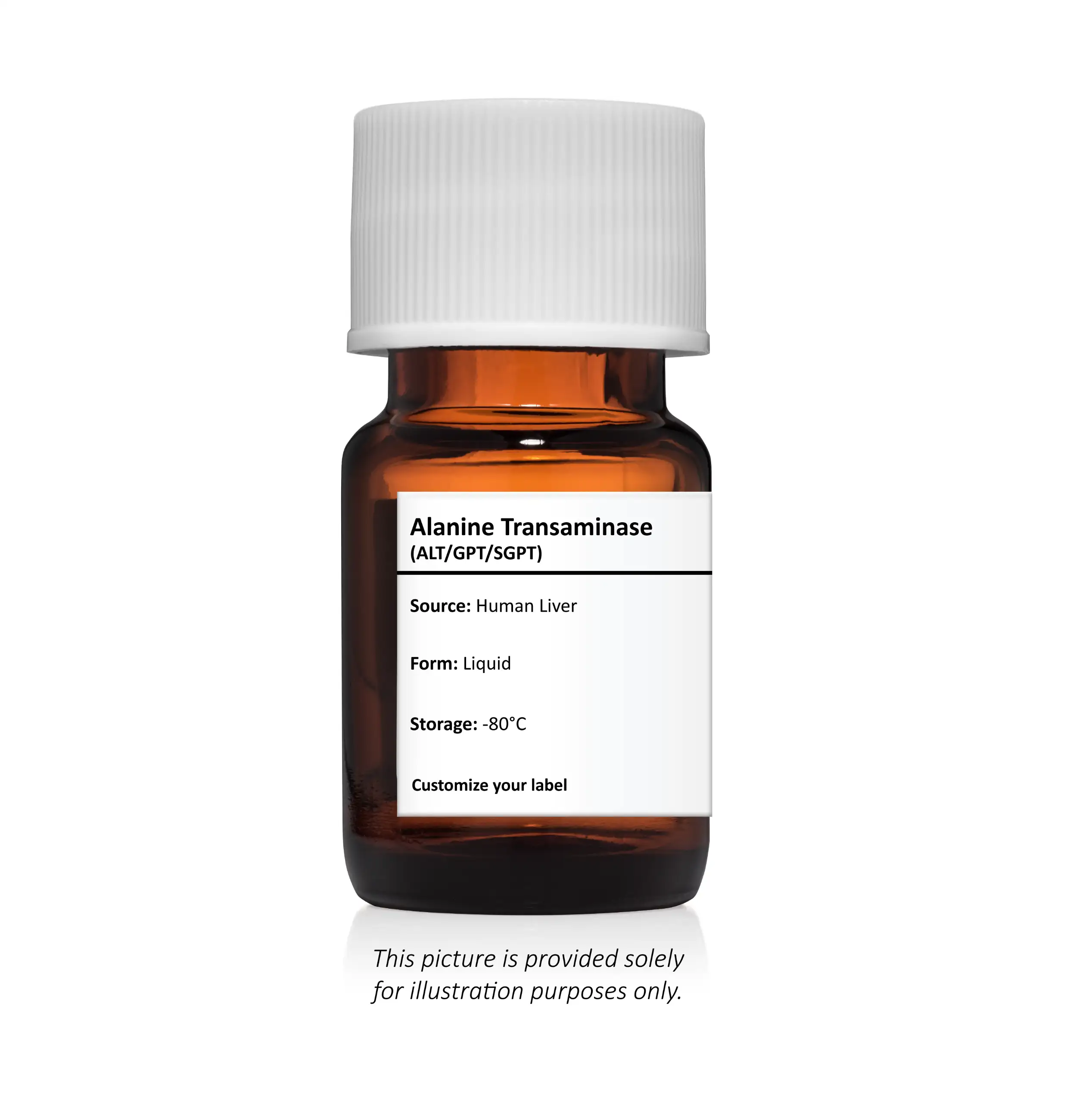Alanine Transaminase (ALT/GPT/SGPT)
Alanine Transaminase (ALT) is a member of the aminotransferase family and catalyzes the reversible transfer of the amino group from glutamate to pyruvate while replacing the amino group of glutamate with a carbonyl group.
| Product Specifications | |
|---|---|
| Source | Human Liver |
| Form | Liquid |
| Purity | Partially Purified |
| Storage | -80°C |

Alanine Transaminase (ALT) is a member of the aminotransferase family and catalyzes the reversible transfer of the amino group from glutamate to pyruvate while replacing the amino group of glutamate with a carbonyl group. The reaction catalyzed by ALT requires the cofactor pyridoxal-5-phosphate (P5P). P5P binds covalently but reversibly to an active-site lysine. This helps catalyze the reaction by accepting the amino group from the amino acid then transferring it to the carbonyl compounds. Under normal conditions ALT is found in most tissues and fluids of the body except urine. The most important source of ALT is the liver. An increased serum level of ALT is a valuable marker of liver injury. A wide variety of conditions can result in elevated serum ALT including most forms of hepatitis, liver carcinoma (both primary and metastatic) and more variably, liver cirrhosis. Serum ALT can also be markedly elevated in patients with alcoholic fatty liver disease. More recently ALT has been shown to be a useful predictor of recurrence of liver cancer after surgery in cancers associated with hepatitis C. Elevated serum ALT has also been shown to be a good predictor for response to interferon alpha therapy for those coinfected with HBV and HIV. While ALT is a very versatile marker for liver pathologies, it does have its limits. It’s rarely specific and there are many cases of liver pathology without a corresponding increase in serum ALT.
